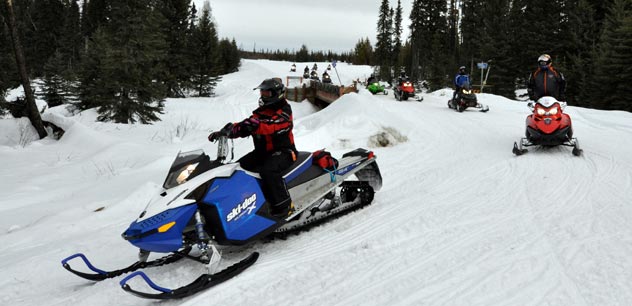
Legislation Affecting Trails
The official Statutes and Regulations are found at Alberta King’s Printer, and should be consulted for all purposes of interpreting and applying the law.
Occupiers’ Liability Act RSA 2000 c0-4
The framework that establishes the duty of care of those who occupy premises and the liability for injuries or damages that occur on that property.
The Occupiers’ Liability Act defines the duty of care owed by the land owner or occupier to those who enter and use that land. The standard of care is to take all reasonable steps to ensure a visitor to the land is safe when on the land.
The Act states that people recreating on the land are treated the same way as trespassers, and therefore the land owner or occupier does not owe a duty of care. Exceptions:
• a duty of care is always owed to children;
• a contract between the land owner or occupier and the person using the land may change the duty of care;
• other than a payment made to a non-profit agency (e.g. for trail maintenance), if there is a payment required for the use of the land, the land owner or occupier has a duty of care.
The land owner or occupier is always liable for willful or reckless conduct.
Occupational Health and Safety Act SA 2020, c O-2.2
The purpose of the Occupational Health and Safety Act is to promote and maintain the well-being of workers, prevent work site incidents, injuries, illnesses and diseases, ensures workers are informed of hazards and how to eliminate or control them, and ensures workers’ rights to participate in health and safety activities in the workplace. Further, it gives workers the right to refuse dangerous work and to work without being disciplined for fulfilling a duty contained in the OHS Act, regulations, or OHS Code.
Land owners or occupiers who have workers carrying out work on their land, must:
• ensure the health and safety of workers,
• communicate hazards and potential hazards to workers,
• cooperate with any one fulfilling a duty contained in the OHS Act, regulations, or OHS Code.
Public Lands Act RSA 2000 c P-40
The Public Lands Act establishes the role of the Alberta government in managing public land by:
• setting out mechanisms for transfer of rights in public land by lease or sale.
• providing for the establishment of regulations to govern use and allocation of public land.
• controlling public land use through public land use zones, recreation areas and trails.
• providing for appropriate use and management of public land and for the classification of the public land base in Alberta.
Trails Act SA 2021 c T-6.2
The Trails Act:
• recognizes designated trails as key contributors to positive environmental, economic and social outcomes and individual well-being,
• establishes a trail management planning process that takes into account many land uses and values on the landscape,
• provides for trails that support desirable user experiences, conservation, protection of the environment along with other legislation,
• recognizes cultural and historical significance of trails
• enables partner participation in trail management,
• encourages shared stewardship by all users.
The official Statutes and Regulations are found at Alberta King’s Printer, and should be consulted for all purposes of interpreting and applying the law.




